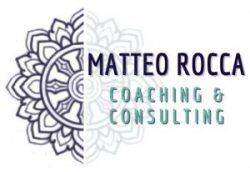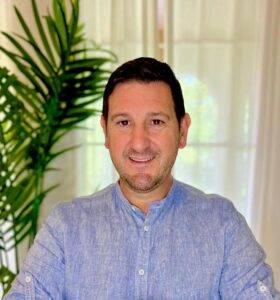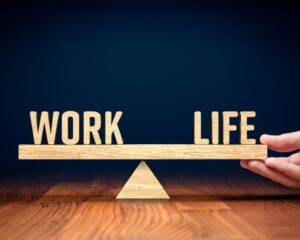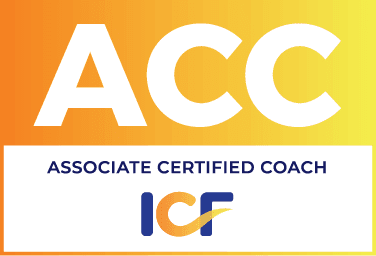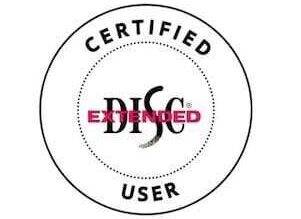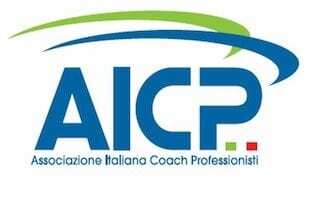COACHING
Partnership with clients through a thought-provoking creative process inspiring them to maximize their personal and professional potential.
WHAT IS COACHING
WHAT DOES "COACH" MEAN
The noun “Coach” in English means coach, but also carriage/car, simultaneously recalling two aspects: the one more closely referring to training and the one referring to the journey, route and accompaniment from one place of departure to another of arrival.
COACHING DEFINITION
Coaching is a specialized intervention that aims at developing potential, overcoming personal limits , increasing performance (personal, professional or sports) and providing support in achieving one or more objectives.
Coaching is a method of training the creative, generative and evolutionary potential . It is characterized by displacement, production by movement towards what is desired in the future.
PURPOSE OF COACHING
The purpose of a Coaching relationship is that of personal and professional change to allow the Client to develop and implement, through his resources and his personal potential, the programs and objectives he wishes to achieve.
The achievement of self-development and self-actualization are supported by the effectiveness of the Coaching relationship . Coaching has the freedom and flexibility to address a wide variety of personal, professional and business topics.
In a coaching relationship , only the client and the coach determine the end of their work and act jointly through a relationship and a co-creation of result, in which the client decides and promotes suitable actions to achieve the desired goal.
THE COACHING MODEL
This methodology is based on a punctually replicable conversational model which sees the main axis in the maieutic dialogue.
The founding father of the method is Sir. John Whitmore who in 1979 devised a method capable of developing maximum performance in performance, skilfully managing to bring together the concepts of autonomous learning process, motivation and purpose, within a performance.
Initially intended for athletes (first of all Timothy Gallwey) this methodology soon extended, refining and modernizing itself, towards the best use of human potential for the achievement of challenging objectives set in the future.
THE COACHING RELATIONSHIP
Coaching is a process relationship based on training personal potential and improving performance.
This process essentially focuses on:
- on setting challenging well-formed goals,
- on the definition of the related action plans useful for achieving them,
- on the motivational support, project realization and alliance that the Coach has towards the client,
- on a creative, evolutionary, generative relationship, moved by positive emotions,
- on the achievement of self-realization through the identification and concrete use of personal potential.
” Creating awareness and accountability is the essence of good coaching ”
Sir John Whitmore
COACHING: FURTHER INFORMATION
COACHING STATISTICS
Research, studies and statistics on Coaching
WHAT COACHING IS NOT
The difference between Coaching and other disciplines
COACHING GLOSSARY
Used terms, words and definitions
COACHING FAQs
Questions and answers to clarify ideas
ONLINE COACHING
To avoid any form of stress, I work in Online Coaching sessions , in videoconferencing, they guarantee the exact same results and greater comfort!
The only condition is that the quality of your connectivity, previously tested, is optimal.
Live in-person tours available upon specific request only.
COMFORT'
- it’s simple to entertain sessions wherever you are (at work, at home, in a hotel, abroad, on a train, plane, car, etc.);
- if you travel often, it guarantees continuity and regularity on the route;
- you avoid having to prepare the setting, welcome and register the guest (office, room, etc.)
- it is easy to use (TV, PC, mobile phone, tablet);
- you don’t have to move, you save time and money on transfers
- it is much more reserved, practical, comfortable and anti-stress;
- avoiding “lost” times, it offers a wider time slot.
BENEFITS
- if you are in a comfortable place you feel more at ease and the session is more effective;
- it’s more convenient: I save time so the price is lower for you;
- it is faster, it adapts to the needs of the agenda (early morning, in the evening, if there is a time zone, on weekends, etc.);
- it saves time and costs for travel and transfers.
- you often use your own PC or Notebook and you can take notes more easily;
- you can choose coaches who reside throughout Italy.
THE BENEFITS OF COACHING
Coaching is good at all levels, it makes the company and your business evolve
Activation of a continuous improvement process
Improve Leadership in giving vision, direction and purpose
Increase personal and business productivity
Optimization of processes, performance and definition of KPIs
It facilitates and accelerates the processes of personal and corporate change
Business strategy definition, planning and execution
Enhance communication, listening and social interactions
Increased personal well-being and decreased stress
Development of skills and competences, resources and potential
Effective regulation of emotions and moods
Attivazione di un processo di miglioramento continuo
Migliora la Leadership nel dare visione, direzione e scopo
Aumenta la produttività a livello personale e aziendale
Ottimizzazione processi, performance e definizione dei KPIs
Facilita ed accelera i processi di cambiamento personale ed aziendale
Definizione strategia aziendale, pianificazione ed esecuzione
Potenziamento comunicazione, ascolto e interazioni sociali
Aumento del benessere personale e diminuzione dello stress
Sviluppo di abilità e competenze, risorse e potenzialità
Efficace regolazione delle emozioni e degli stati d' animo
"The foolish seeks happiness, the wise cultivate what they have. ”
James Oppenheim

THE HISTORY AND ORIGINS OF COACHING
THE ORIGINS OF COACHING
I know that I do not know!
The origins of Coaching can even be identified in Athens, in ancient Greece, in the figure of the philosopher Socrates. One of his most famous statements about him was “I know I don’t know” (concept at the base of the “docta ignorantia” ) which he formulated in a terrible moment of his existence, i.e. before his death sentence.
Socrates interrogated others with questions, conversing with them and stimulating his interlocutors, but never providing pre-packaged answers.
He stated “..they have never learned anything from me, but it is they who, by themselves, discover and generate many beautiful things” .
THE MASTER LEARNS FROM THE PUPIL
This is a phrase that encompasses the true basis of Socratic “maieutics”: “the art that enables the student through dialogue to acquire progressive awareness of the truth that is within him” (cit. Zingarelli).
The splendid thing is that in this way the master actually becomes the first disciple of his pupil: therefore a real reversal of the relationship takes place.
THE FIRST COACH
Socrates was the first Coach in history
Socrates was the first professional Coach : through effective questions he accompanied and stimulated people to find their own way, their own truth, their own answers and internal resources, in a journey of discovery, which inevitably also brought with it a new, deep awareness.
The Coach’s attitude is similar to that of Socrates, he approaches people without having his own personal judgment or predetermined thought, but lets himself be “disoriented” by the client, by his unique and wonderful peculiarity, by his world, knowing that whoever knows his own life is the person himself.
The Coach nourishes the awareness of having to move from the position in which we feel that not knowing is a defect, an inferiority, to one in which instead we realize that it is actually a strength.
The Coach gets in touch with the problem and the situation reported by the Coachee , and then detaches from it, while always maintaining control over the process, lucidity in the method, his perspective vision.
ABSENCE OF JUDGMENT
The Coach therefore suspends judgment, does not provide solutions or recipes for happiness, but actively listens to the client with an open mind and heart, supporting him to help him in the search for his truth and in achieving his personal goals.

" The effectiveness of what we do depends largely on our beliefs about human potential "
John Whitmore
TYPES OF COACHING
EXECUTIVE COACHING
Recipients: Top Managers and Executives
It is the business coaching reserved for top managers and executives. The relationship takes place within a corporate, government, non-profit or educational organization. The coaching contract is stipulated between three parties: client (company), coach, client (manager). The triangulation of the contract is the peculiar element of this type of coaching and requires specific skills on the part of the coach, who must always act in the interest of the client. It is desirable that the results produced by this relationship be observable and measurable.
BUSINESS COACHING
Recipients: Professionals and companies
The focus of coaching is in this case professional competence. The coach supports the coachee in achieving his professional goals, both by deepening the meaning that these have for the person and by improving the efficiency of the performance to achieve them. The client is accompanied on a personalized path for the optimal development of their professional and motivational relational skills by using her specific potential. The coach looks at the person and not just at their performance: in the coaching relationship the client has the opportunity to become fully aware of their potential and to use them to achieve their goals in the working context. It is from the improvement of his professional being that the efficiency of his work derives. With regards to managers and entrepreneurs, the coach also performs an important function of comparison, training and support by training their self-efficacy, leadership style, the clarity of their vision, the effectiveness of their objectives. To those who have to start their own profession, change it, enter the world of work, coaching also offers support in directing choices so that they are in line with their professional self-realization goals.
LIFE COACHING
Recipients: individuals or family groups
Life coaching aims to develop concrete programs of self-development and self-efficacy verifiable through concrete objectives. It can be used in every aspect of people’s private lives, from relationships to work, from study to the relationship with oneself, especially in times of change or transition through the different phases of life.
It focuses on the present and future development of social and occupational functioning. Life coaching can also be applied to the family . In this case it is divided into parent coaching (reserved for the parental couple), teen coaching (reserved for adolescents), couple coaching (reserved for the couple relationship), systemic coaching (reserved for the family).
CORPORATE COACHING
TEAM COACHING
Recipients: Workgroups, corporate teams
The coach intervenes in a group as a facilitator. The coaching intervention makes it easier for individual team members to move from a vision centered on their own skills and ways of thinking, to an overview of the skills useful for the development of the group. Team coaching favors the transition from a focus on the contents of one’s work to a focus on processes. The coaching intervention in a team allows individuals to operate according to their potential, thus increasing the sense of self-efficacy and autonomy, key factors for triggering the processes of mobilization and overcoming the obstacles of the group. On the other hand, the coach also works to make the members understand the need for an interdependence that makes it possible to optimize and direct the group’s performance towards a shared and participatory goal. A prerequisite for team coaching is the ability to identify the leadership of the group. Theteam coaching can be used as part of the intervention in organizational coaching.
CAREER COACHING
Recipients: top managers and professionals
Career Guidance Service. Career counseling path for those who want to find opportunities, change jobs or grow professionally. Discover your talents and let them be discovered. Go with determination towards the profession you want.
